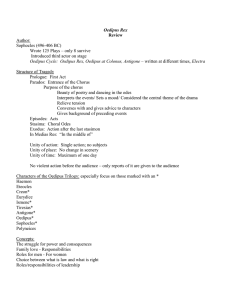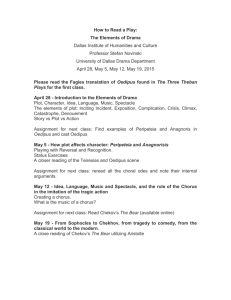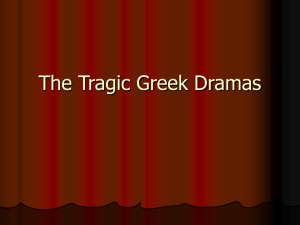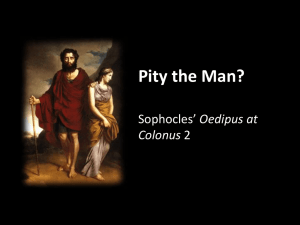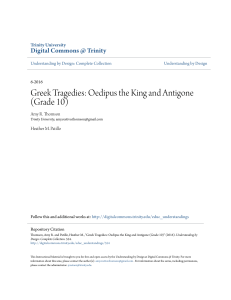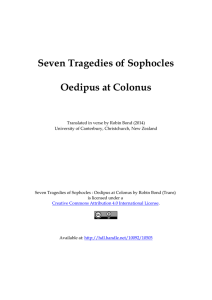Introduction to Greek Theater
advertisement
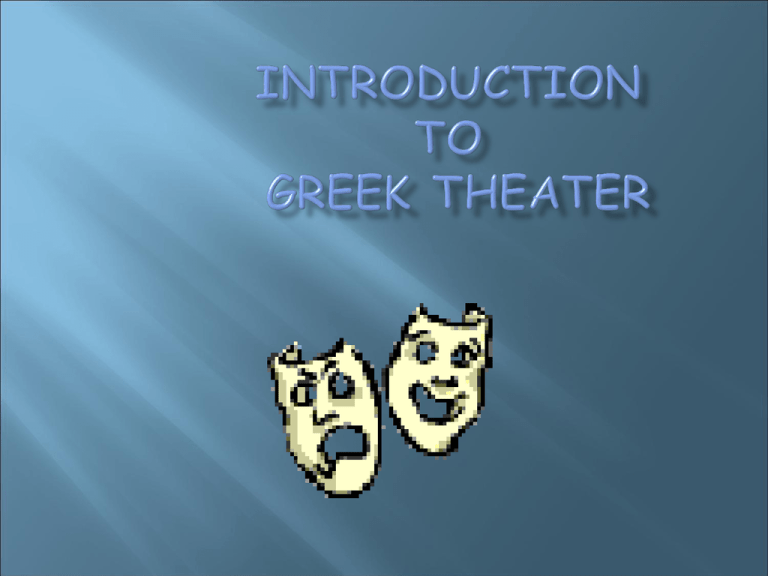
Name that tune????? four day extravaganza sacrifice and drama competitions early spring—tied to re-birth of spirit of vegetation dithyramb—choral lyrics and revels chorus—15-50 people, commentary in lyric form—revelation of feelings actors—Thespis the first Aesychlus added a second Sophocles a third only male, use of highly decorated masks PROLOGUE— exposition and set up the plot PARADOS— entrance of chorus through arches—parade— ode EPISODES— building of the plot STASIMONS— odes in one place ode—strophe, antistrophe: dancing directions EPILOGUE— resolution, dénouement EXODUS— chorus has the final word tragedy— IMITATION OF A SERIOUS COMPLETE ACTION A DRAMA AROUSES FEAR AND PITY FOR THE CATHARSIS OF THE EMOTIONS concept of unity— one action one time one place PLOT: series of incidents—Greeks used wellknown stories use of IRONY—dramatic, verbal, situational concept of PERIPETY— reversal of fortune or luck concept of DISCOVERY—from ignorance to knowledge TRAGIC HERO: not too virtuous, but virtuous man whose fall comes about because of an unwise decision—hamartia: missing the mark, the tragic flaw CHARACTERS: moral, appropriate, realistic, consistent THOUGHT: ideas, general truth—large issues DICTION: lofty, no slang— MELODY: accompaniment SPECTACLE: stage appearance; horror occurs offstage and audience sees only the responses to the violence The playwright—Sophocles: 5th c. BC Athens—political expansionism and social optimism; Protagoras—“man is the measure of all things”—contrasted with the role of the gods in the Iliad The cycle— composed over a period of thirty years order of writing was Antigone, Oedipus the King, and Oedipus at Colonus. The chronological plot order is Oedipus the King, Oedipus at Colonus, and Antigone. The trilogy asks life’s basic questions: Oedipus the King—who am I? Quest for identity; nature of innocence and guilt; nature of moral responsibility; human will v. fate; abuse of power Oedipus at Colonus—death and redemption Antigone—the individual v. the state; the abuse of power
